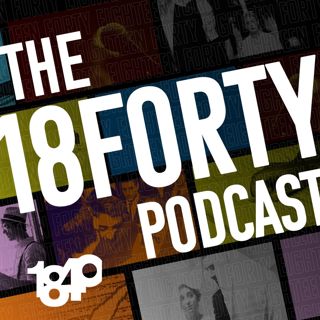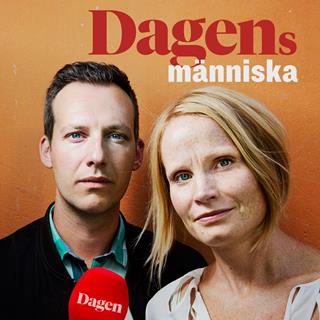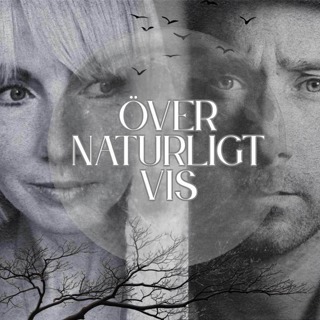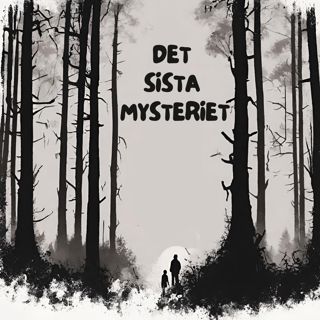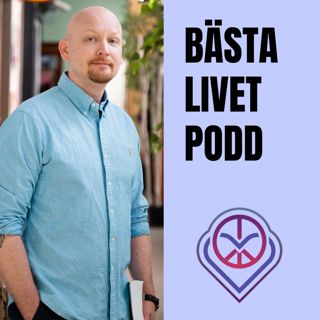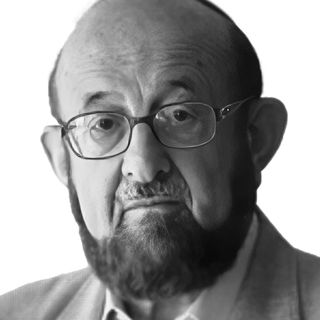
Haym Soloveitchik: How Modernity Changed Our Relationship to God
In this episode of the 18Forty Podcast, we speak with Rabbi Dr. Haym Soloveitchik—a pioneer and leader in the study of the history of Jewish law—about how halacha mediates our relationship to God in 2025.We’ve already spoken with Dr. Soloveitchik in our Halacha series, but a closer reading of his essential work, "Rupture and Reconstruction," demands that we explore it more deeply. In this episode we discuss:Why do Jews feel bound by the Talmud in a multicultural world? What does it mean to live in a society that increasingly learns from books and online rather than from mimetic tradition?Is a sense of security as a People a breeding ground for unnecessary social differences?Tune in to hear a conversation about how we might ensure a more vibrant environment for Jewish life to thrive in a changing world. Interview begins at 5:03.Rabbi Dr. Haym Soloveitchik graduated from the Maimonides School which his father founded in Brookline, Massachusetts, and then received his B.A. degree from Harvard College in 1958 with a major in history. After two years of postgraduate study at Harvard, he moved to Israel and began his studies toward an M.A. and PhD at the Hebrew University in Jerusalem, under the historian Professor Jacob Katz. He wrote his Master’s thesis on the halacha of gentile wine in medieval Germany. His doctorate, which he received in 1972, concentrated on laws of pawnbroking and usury. He is considered a pioneer and leader in the study of the history of Jewish law.References:Rupture and Reconstruction: The Transformation of Modern Orthodoxy by Haym SoloveitchikCollected Essays: Volumes I, II, and III by Haym SoloveitchikJews and the Wine Trade in Medieval Europe: Principles and Pressures by Haym SoloveitchikRabbi Joseph B. Soloveitchik’s Obituary in The Jewish ObserverIgros Hagrid Halevi by Rabbi Joseph B. SoloveitchikRationalism in Politics and other essays by Michael OakeshottThe Uprooted: The Epic Story of the Great Migrations That Made the American People by Oscar HandlinThe Polish Peasant in Europe and America by William Thomas and Florian Znaniecki“On the Third Yeshivah of Bavel” by by Haym SoloveitchikBecome a supporter of this podcast: https://www.spreaker.com/podcast/18forty-podcast--4344730/support.
7 Jan 1h 46min
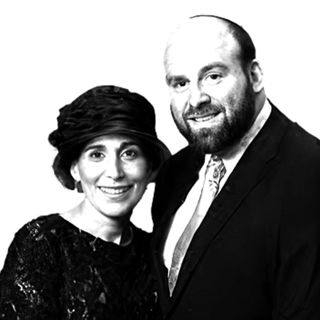
Reuven and Shani Taragin: What’s Next: The Future of Religious Zionism (Re-Release)
We don't have a new episode this week, but we invite you to revisit our conversation with Reuven and Shani Taragin on the future of Religious Zionism, originally aired Jan. 16, 2024.In this episode of the 18Forty Podcast, we talk to Rav Reuven and Rabbanit Shani Taragin, educational directors of World Mizrachi, about what comes next for Israel’s Dati Leumi (Religious Zionist) community. Additionally, we speak with Gideon Davis, a Religious Zionist soldier serving in Gaza.Mistakenly, we tend to think of the Dati Leumi community as Israel’s analog to Modern Orthodoxy. That makes us miss, however, that Religious Zionism is a rich worldview unto itself, and is something we all can learn from. In this episode we discuss:How does the Dati Leumi community differ from the American Modern Orthodox community?What can American Jews better understand about the sacrifices and contributions made by Religious Zionists?What does it mean to be a member of the Dati Leumi community in 2024?Tune in to hear a conversation about how a religious mindset can expand beyond personal piety to include a deep commitment to the Jewish People and the world.Interview with Gideon Davis begins at 6:09.Interview with Reuven and Shani Taragin begins at 36:42.Rav Reuven Taragin is a former Wexner Fellow and Musmach of the Israeli Chief Rabbinate. Rav Taragin is the Dean of Overseas Students at Yeshivat Hakotel where he is responsible for the program’s quality and message and the welfare of each of its talmidim. Rav Taragin is also the Rosh Beit Midrash at Camp Moshava (I.O.), and Rav of Kehillat Eretz Chemdah in Katamon.Rabbanit Shani Taragin is a noted author and teacher at Midreshet Lindenbaum, Midreshet Torah V’Avodah, MaTaN, Migdal Oz, Sha’alvim for Women, Lander College, and the Women’s’ Beit Midrash in Efrat and Ramat Shilo.The Taragins are the Educational Directors of World Mizrachi and the RZA (Religious Zionists of America), and they also serve as Roshei Beit Medrash for the Beit Medrash Program in Camp Moshava IO during the summer. They have six children and live in Alon Shvut, Gush Etzion.References:The MatrixAdjusting Sights by Haim SabatoTanakhThe Rav Speaks by Joseph B. Soleveitchik“How Will Redemption Begin?” by David BashevkinMeshekh Chokhmah by Meir Simha HaKohen DvinskBecome a supporter of this podcast: https://www.spreaker.com/podcast/18forty-podcast--4344730/support.
31 Dec 20242h 1min

Einat Wilf: ‘Jews Are Never Allowed To Win, and Arabs Are Never Allowed to Lose' (18 Questions, 40 Israeli Thinkers)
We're taking a week off from our main podcast, but we want to share with you an episode of our new podcast, 18 Questions, 40 Israeli Thinkers, recorded on Nov. 25. Subscribe on Spotify or Apple Podcasts to catch the latest episode every Monday. The true enemy in Israel's current war, Einat Wilf says, is what she calls "Palestinianism."Once part of the Israeli left, Einat Wilf is a popular political thinker on Israel, Zionism, and foreign policy. Her 2020 co-authored book, "The War of Return," outlines what she believes lies at the core of the Palestinian-Israeli conflict: the Palestinian people's "Right of Return" is what makes this conflict unresolvable.Einat served in Israel's Knesset from 2010 to 2013 and now lectures and writes widely on contemporary issues. She is the author of seven books and hosts the "We Should All Be Zionists" podcast. She has a BA from Harvard, an MBA from INSEAD in France, and a PhD in Political Science from the University of Cambridge. Now, Einat joins us to answer 18 questions on Israel, including what Palestinianism is, why Israel's war aims are flawed, and the future of Gaza.This interview was held on Nov. 25.Here are our 18 questions:As an Israeli, and as a Jew, how are you feeling at this moment in Israeli history?What has been Israel’s greatest success and greatest mistake in its war against Hamas?How do you think Hamas views the outcome and aftermath of October 7—was it a success, in their eyes? What do you look for in deciding which Knesset party to vote for?Which is more important for Israel: Judaism or democracy?Should Israel treat its Jewish and non-Jewish citizens the same?What role should the Israeli government have in religious matters?Now that Israel already exists, what is the purpose of Zionism?Is opposing Zionism inherently antisemitic?Is the IDF the world’s most moral army?If you were making the case for Israel, where would you begin?Can questioning the actions of Israel’s government and army — even in the context of this war — be a valid form of love and patriotism?What do you think is the most legitimate criticism leveled against Israel today?Do you think peace between Israelis and Palestinians will happen within your lifetime?What should happen with Gaza and the Palestinian-Israeli conflict after the war?Is Israel properly handling the Iranian threat?Where do you identify on Israel’s political and religious spectrum, and do you have friends on the “other side”?Do you have more hope or fear for Israel and the Jewish People?Become a supporter of this podcast: https://www.spreaker.com/podcast/18forty-podcast--4344730/support.
24 Dec 20241h 22min
![What’s the Goal of the Gap Year in Israel? Ari Waxman, Judah Mischel, and Gershon Turetsky [Israel & Diaspora Bonus]](https://cdn.podme.com/podcast-images/59609A613EF58754D6B0CECB5578526E_small.jpg)
What’s the Goal of the Gap Year in Israel? Ari Waxman, Judah Mischel, and Gershon Turetsky [Israel & Diaspora Bonus]
This episode is sponsored by Eden Beit Shemesh. Contact Rina Weinberg at info@edenbeitshemesh.com for more details.In this episode of the 18Forty Podcast, we talk to a panel of rabbis about yeshiva, seminary, and the “year in Israel.” Additionally, we hear from Dov Rosenblatt, who more than two decades ago wrote the satirical song “Flippin’ Out.” Gap-year programs have become one of the primary points of contact that American Jews have with Israel. But, paradoxically, the year in Israel is a quintessentially American experience. In this episode we discuss:What are the signs of a healthy gap-year experience? How can gap-year programs become more focused on Israel? How has the year in Israel changed in a post–October 7 world?Tune in to hear a conversation about how the gap year can meet the needs of this generation.Interview with Dov Rosenblatt begins at 16:25.Shaalvim Dinner panel with Ari Waxman, Judah Mischel, and Gershon Turetsky begins at 33:36.References:“Flippin' Out” by Blue FringeFlipping Out? Myth or Fact? The Impact of the "Year in Israel" by Shalom Z. Berger, Daniel Jacobson, Chaim I. Waxman“Why Space Tourists Won't Find the Awe They Seek” by Henry Wismayer18Forty Podcast: “Rav Judah Mischel: A Change in Progress”“‘Dumbed-Down Catholicism Was a Disaster’” by Molly WorthenBecome a supporter of this podcast: https://www.spreaker.com/podcast/18forty-podcast--4344730/support.
17 Dec 20241h 32min
![Mickey and Ortal Flaumenhaft: Diaspora Differences: Israelis Come to Teaneck [Israel & Diaspora 5/5]](https://cdn.podme.com/podcast-images/86B8A44897AE2D434058B5F0564BE0DA_small.jpg)
Mickey and Ortal Flaumenhaft: Diaspora Differences: Israelis Come to Teaneck [Israel & Diaspora 5/5]
This episode is sponsored by Eden Beit Shemesh. Contact Rina Weinberg at info@edenbeitshemesh.com for more details.In this episode of the 18Forty Podcast, we talk to Mickey and Ortal Flaumenhaft—David Bashevkin’s Israeli neighbors in Teaneck—about their experiences living Jewishly in three different countries. When the Flaumenhafts were in Israel for their son’s bar mitzvah on October 7, Mickey made the decision to join his unit in Gaza. In this episode we discuss:What does a couple consider when making the decision to leave Israel? What can Americans learn from the way Judaism permeates Israeli culture?How has the American Jewish community’s connection to Israel deepened since October 7?Tune in to hear a conversation about what it means to hold the entirety of the Jewish People in our hearts, no matter where we might be. Interview begins at 7:45.Mickey Flaumenhaft is the Director of Development at American Friends of Migdal Ohr, a welfare organization for Israel’s orphaned and at-risk youth. Mickey served reservist duty in Gaza this past year. Ortal Flaumenhaft is a first-grade teacher for Hebrew and Judaic studies at Yeshivat He'Atid in Teaneck.References:A Man Without a Country by Kurt VonnegutTo Heal a Fractured World: The Ethics of Responsibility by Jonathan SacksThe Legends of Rabbah Bar Bar Hannah with the Commentary of Rabbi Abraham Isaac Hakohen Kook by Bezalel Naor18Forty Podcast: “Bezalel Naor: Rav Kook’s Mystical Vision of Zionism”Become a supporter of this podcast: https://www.spreaker.com/podcast/18forty-podcast--4344730/support.
10 Dec 20241h 9min
![Yehuda and Ilana Turetsky: Why Would an American Rabbinic Couple Move to Israel? [Israel & Diaspora 4/5]](https://cdn.podme.com/podcast-images/5B001D5B361AC29A4BCF0DCC3AFC836D_small.jpg)
Yehuda and Ilana Turetsky: Why Would an American Rabbinic Couple Move to Israel? [Israel & Diaspora 4/5]
This episode is sponsored by Eden Beit Shemesh. Contact Rina Weinberg at info@edenbeitshemesh.com for more details.In this episode of the 18Forty Podcast, we talk to Rabbi Yehuda Turetsky—a rosh mesivta of Yeshiva Sha’alavim—and Dr. Ilana Turetsky—a Yeshiva University faculty member supervising student-teachers in Israel—about their experience raising kids in Israel.North American Orthodox Judaism has developed strong boundaries deciding who is in and who is out of the community. But, when we look to our friends in Israel, we find that our approach is by no means the only one. In this episode we discuss:How does Israel’s Hardal community differ from America’s Centrist Orthodox community? What do olim parents think of the way religion and politics are intertwined in Israel? How has “flip-out” culture in gap-year programs evolved in recent decades?Tune in to hear a conversation about understanding religious growth in ways that transcend “right” and “left.” Interview begins at 11:41.Rav Yehuda Turetsky is a rosh mesivta of Yeshiva Sha’alavim. After attending Shaalvim, he returned to Yeshiva University, where he received a B.A. in Psychology, M.S. in Jewish Education, and Semicha as a member of the Wexner Semicha Honors Program. He has published articles on a variety of topics, including Gemara, Medical Halacha, Jewish Education, and the Sociology of the Modern Orthodox community. Dr. Ilana Turetsky is a faculty member at Azrieli Graduate School of Yeshiva University, teaching online courses and supervising student-teachers in Israel. She holds a Doctorate and Master’s degree from Azrieli Graduate School, a Bachelor’s degree from Stern College, and a Misrad HaChinuch Te’udat Hora’ah in Tanach Education from Herzog College. References:Machshava on the Parsha with Rabbi Yehuda Turetsky“Sliding to the Left? Contemporary American Modern Orthodoxy” by Yehuda Turetsky and Chaim I. WaxmanBecome a supporter of this podcast: https://www.spreaker.com/podcast/18forty-podcast--4344730/support.
3 Dec 20241h 32min
![Shayna Goldberg: Inside Israel’s Religious Zionist Community [Israel & Diaspora 3/5]](https://cdn.podme.com/podcast-images/003B9B612923887A7C62480F0A815183_small.jpg)
Shayna Goldberg: Inside Israel’s Religious Zionist Community [Israel & Diaspora 3/5]
This episode is sponsored by Eden Beit Shemesh. Contact Rina Weinberg at info@edenbeitshemesh.com for more details.Noam Taragin, son of our recent guest Rabbi Moshe Taragin, was seriously injured in Lebanon. We ask to pray for his quick healing: Noam Avraham ben Atara Shlomit.In this episode of the 18Forty Podcast, we talk to Shayna Goldberg—a teacher, mashgicha ruchanit, yoetzet halacha, and author—about the unique features of Israel’s Religious Zionist community.Jews in America are proud of the institutions and culture built over the past century, but we tend to forget that Israel’s Dati Leumi community has developed its own parallel—and vastly different—culture. In this episode we discuss:How did Rabbi Joseph B. Soloveitchik and Rav Kook lay the groundwork for our different religious communities today? How does religious life in Israel compare with America?How have religious Israeli women’s attitudes toward army service evolved over the years?Tune in to hear a conversation about how deeply Jewish practice and spirituality penetrate everyday life in Israel’s religious communities. Interview begins at 12:42.Rabbanit Shayna Goldberg teaches Israeli and American post-high school students and is the mashgicha ruchanit in the Stella K. Abraham Beit Midrash for Women in Migdal Oz, an affiliate of Yeshivat Har Etzion. She is a yoetzet halacha, a contributing editor for Deracheha: Women and Mitzvot, and the author of the book, What Do You Really Want? Trust and Fear in Decision Making at Life's Crossroads and in Everyday Living (2021).References:“Rabbi Soloveitchik Meets Rav Kook” by Jeffrey SaksOrot HaTeshuvah by Abraham Isaac HaCohen KookPrepare My Prayer by Rabbi Dov SingerWorks of Rav ShagarSus Anochi by Rabbi Jacob SassonZeved Tov by Rabbi Zevulun CharlopBecome a supporter of this podcast: https://www.spreaker.com/podcast/18forty-podcast--4344730/support.
26 Nov 20241h 58min
![Malka Simkovich: When Did The Jewish Diaspora Begin? [Israel & Diaspora 2/5]](https://cdn.podme.com/podcast-images/8A598BE20D3F3A053AA6EDC6855F2B23_small.jpg)
Malka Simkovich: When Did The Jewish Diaspora Begin? [Israel & Diaspora 2/5]
This episode is sponsored by Eden Beit Shemesh. Contact Rina Weinberg at info@edenbeitshemesh.com for more details. Noam Taragin, son of our previous guest Rabbi Moshe Taragin, was seriously injured in Lebanon. We ask to pray for his quick healing: Noam Avraham ben Atara Shlomit.In this episode of the 18Forty Podcast, we talk to Malka Simkovich—a scholar of Jewish history, the editor-in-chief of the Jewish Publication Society, and a three-time 18Forty guest—about previous Jewish diasporas. We tend to think of “Israel-diaspora relations” as a modern phenomenon. But, as Dr. Simkovich reminds us, that situation existed well over 2,000 years ago, when some Jews returned to the Land of Israel following the Babylonian exile while others remained abroad. In this episode we discuss:What are the differences between the notions of golah, diaspora, and galut?Did ancient diaspora Jews have a political equivalent to “supporting Israel”? How should Jews live when in a partial state of exile?Tune in to hear a conversation about the “proto-messianic mindset” throughout Jewish history and today. Interview begins at 8:58.Dr. Malka Simkovich is the director and editor-in-chief of the Jewish Publication Society and previously served as the Crown-Ryan Chair of Jewish Studies and Director of the Catholic-Jewish Studies program at Catholic Theological Union in Chicago. She earned a doctoral degree in Second Temple and Rabbinic Judaism from Brandeis University and a Master’s degree in Hebrew Bible from Harvard University. She is the author of The Making of Jewish Universalism: From Exile to Alexandria (2016), Discovering Second Temple Literature: The Scriptures and Stories That Shaped Early Judaism (2018), and Letters From Home: The Creation of Diaspora in Jewish Antiquity, (2024). This is her third time speaking on 18Forty.References:18Forty Podcast: “Malka Simkovich: The Mystery of the Jewish People”18Forty Podcast: “Malka Simkovich: The Secrets of Second Temple Judaism”Letters from Home: The Creation of Diaspora in Jewish Antiquity by Malka Z. SimkovichThe Antiquities of the Jews by JosephusThe Elephantine Papyri in English: Three Millennia of Cross-Cultural Continuity and Change by Bezalel PortenRosh Hashanah 18bBen SiraZechariah 8:19Become a supporter of this podcast: https://www.spreaker.com/podcast/18forty-podcast--4344730/support.
19 Nov 20241h 15min
